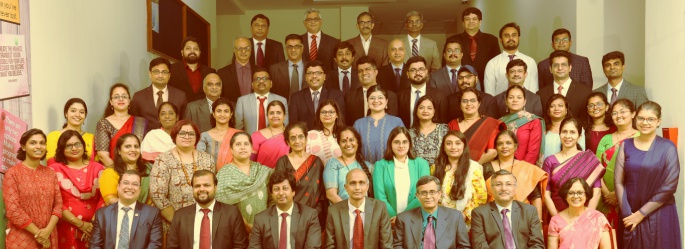Publication: India Today
Author: Prof. Vrishali Bhat
In today’s world, there are many uncertainties due to external events like war, pandemics, natural calamities etc. There is also growing awareness about the use of sustainable products, use of renewable resources, equal opportunity for all in the workforce and social equity amongst other things.
The ever-changing business landscape (popularly known as VUCA world) therefore needs managers and leaders who can embrace these challenges and provide effective solutions to be innovative, gain competitive advantage and sustain long-term growth.
Technology has not only enabled easy access to information for all but even simplified comparison of various product features, service quality, prices, and other related aspects.
Analysing large volumes of data about consumer/user demographics, behaviour and the effect of various macroeconomic factors on consumption patterns has gained prominence in recent years.
The ability of businesses to analyse historical trends, use critical insights for being able to accurately predict demand and make suitable operational adjustments to meet the demand for various products/services is now clearly a key factor for success.
DATA ANALYTICS
Therefore, the specialisation of data/business analytics is gaining prominence. Basic knowledge of all functional business areas combined with proficiency in advanced analytics (techniques and software) is a career option for MBA students.
Analytics can help businesses in increasing market share and revenues, optimising costs, identify potential threats/risks and perhaps even introducing new products and services.
SMALL BUSINESSES
Start-ups and family-owned/managed businesses are quite common in India. The government also recognises the need to encourage entrepreneurial spirit and there are many policies/schemes that provide necessary funding and infrastructure support to small businesses.
Many established business leaders also provide mentorship and/or initial funding to start-ups. Reality shows like ‘Shark Tank’ drew attention to entrepreneurship and have rekindled interest therein.
Also, most business schools have set up or collaborated with “incubators” or created an ecosystem that facilitates experimentation.
ENTREPRENEURSHIP
It is indeed an exciting time to consider entrepreneurship as a specialisation. This specialisation is not just for those who want to start their own ventures but is also useful for those aspiring for careers in business consulting.
This would involve various activities like advising entrepreneurs about the numerous regulations/compliances, guiding them towards appropriate business strategies, proving networking opportunities, supporting fundraising activities etc.
FUNCTIONAL SPECIALISATIONS
Functional specialisations like finance, sales and marketing, operations, and human resource management have always been available. Expertise in any of these areas may be gained for students aspiring for careers in a particular function.
Alternatively, students may choose to specialise in business strategy. This will require not only a deep understanding of all business domains but also an appreciation of the interlinkages across these domains.
The skill set thus acquired is likely to be easily transferable across sectors.
INTERNATIONAL BUSINESS
Businesses today are geographically diversified and therefore need to develop structures, mechanisms and practices that are respectful of the varied cultures and take cognizance of divergent regulations.
The ability to continuously monitor socio-economic-political situations in various countries and take appropriate steps to grow/mitigate risks is required.
Therefore, international business as a specialisation offers many exciting opportunities for students to truly be global leaders.
Each of the above-mentioned specialisations will typically offer a bouquet of courses from which a student may choose to develop certain core competencies. The career opportunities are many in each of these fields.




